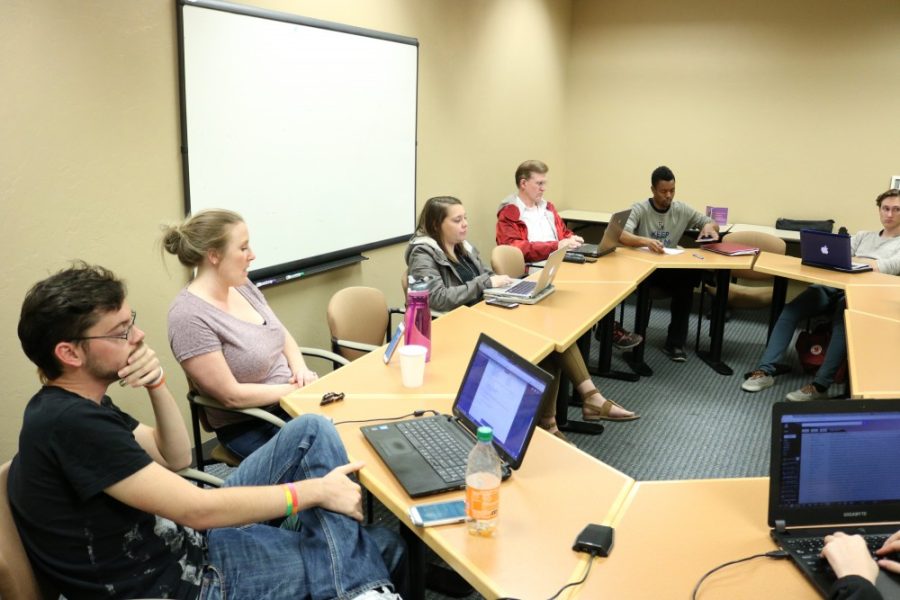The Graduate and Professional Student Council met Monday, Feb. 5 to discuss topics affecting graduate students.
GPSC Legislative Affairs Director Sean Goslar announced that AdvoCats, a group that advocates for legislation on behalf of the UA, will be going to the state legislature in Phoenix on Wednesday, Feb. 28.
Goslar, along with GPSC Administrative Vice President Dustin Tran, encouraged the general council to attend the event to become involved with the legislature.
ASUA presidential candidate Stefano “Salt” Saltalamacchia spoke during the call to the audience section. Saltalamacchia informed the council that he, 28, is the oldest person running for office, and if he won, he would be the oldest student body president.
RELATED: GPSC Notebook Jan. 22: Two new reps sworn in
Saltalamacchia also informed the council of his platform of health and accessibility. It would include free HIV and STD testing, a sustainable printing program for undergraduate and graduate students and access to health resources for students on campus.
Representatives discuss the role of CAPS on campus
The council discussed issues regarding Counseling and Psychological Services on campus. CAPS currently provides services such as therapy, counseling and services for sexual assault survivors. The issues ranged from the amount of time that students wait for appointments to CAPS being understaffed and underfunded.
One issue, noted by Tran, was that students often complain about having to wait up to three weeks after an initial plan to be seen again, an issue that GPSC Representative Nicholas Havey said was standard.
Another issue was that CAPS has no capacity for longer-term services and treatments. GPSC Representative Devon Degraffenreed noted that CAPS was not designed for long-term treatment.
Degraffenreed informed the council that CAPS was designed for short-term treatment, and would then refer students outside of CAPS for longer-term treatment.
Engagement an issue for council
GPSC Social Chair Marie Teemant discussed ways the council can engage with their constituencies.
One method involves engaging students not in GPSC with judging grants. Another way the council discussed was engaging with UA President Dr. Robert Robbins in his new strategic plan.
Teemant also presented to the council a form that clubs and organizations could use to support graduate students in applying for event sponsorships.
RELATED: GPSC Notebook Dec. 4: GOP Tax Bill draws concern
According to Teemant, GPSC has $2,000 set aside for sponsoring programs that serve graduate students. Any organization or club can apply for sponsorship up to $500.
Tran and GPSC President Jessica Baxter announced that tuition and fee setting has begun. She informed the council that this is one of GPSC’s most active times, and that there is currently a proposal out.
The proposal goes to a hearing in March and will be approved in April.
Finally, GPSC Representative Barbara Dobrin announced that a member of Faculty Senate has introduced a policy that will not allow professors to assign textbooks written by them for their own classes.
Dobrin herself said that the current ability is “an abuse of power,” and that once the new policy passes, professors will no longer be able to do so.
Follow Jordan Williams Twitter









